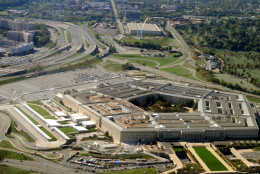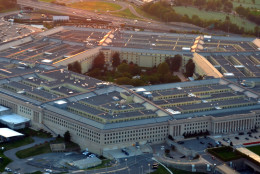DISA
-
DISA is hurrying up its work to deliver unified capabilities to the Defense Department nearly a year early.
February 13, 2017 -
The Defense Department is having a particularly tough time integrating mobile technology into its mission, largely because every attempt to link it to the Common-Access-Card has been too cumbersome. But DISA’s Purebred program may have found a way to bypass the CAC altogether.
January 25, 2017 -
The federal government decided to put the Defense Department in charge of building a new information technology backbone to house and process all of the data involved in security clearance investigations, one that would be safer from foreign attacks.
December 19, 2016 -
The Defense Department's $38.5 billion IT budget in the fiscal 2017 requests is being driven by three major trends contractors should be aware of: cybersecurity, cloud and analytics.
November 24, 2016 -
DoD now has a fully-functional Wi-Fi network throughout much of the building, something that was unimaginable to the Pentagon’s own IT experts as recently as a few years ago because of cybersecurity concerns.
November 21, 2016 -
DISA is trying to speed up its acquisition of collaborative video, voice and data services.
November 17, 2016 -
The Lohfeld Consulting group ranked upcoming civilian and DoD contracts that meet three criteria: a likely 2017 request for proposal, likelihood of funding and awards next fiscal year, a significant pool of contenders.
November 03, 2016 -
The Defense Department is taking growing pains in stride as it continues to work on its multi-year implementation plan of the cybersecurity system, the Joint Regional Security Stacks (JRSS).
November 02, 2016 -
The Pentagon is developing a secure cloud computing architecture that will create a standard approach for boundary and application level security for commercial services.
September 26, 2016 -
The Defense Department issued a RFI to industry outlining 12 functional areas it wants to upgrade using government-owned and commercial technologies.
September 22, 2016 -
Important lessons are being learned as the government takes tentative steps toward the cloud computing environment.
September 14, 2016 -
A month after being rebuked by the Government Accountability Office for the way it planned to pick vendors in a ten year, $17.5 billion IT services contract, the Defense Information Systems Agency issued a revised request for proposals Wednesday, giving vendors a little more than three weeks to submit new bid packages.
September 08, 2016 -
GAO explicitly rejected the claim that the agency shouldn't have used LPTA, saying the decision was justified because ENCORE is “a mature program with a substantial commercial application.”
September 06, 2016 -
Scott Airforce Base in Illinois is home to the Global Operations Command of the Defense Information Systems Agency, 164,000 square feet devoted to cybersecurity.
September 05, 2016 -
The Army is sticking to its word on a late 2016 request for proposals on unified capabilities.
September 02, 2016















